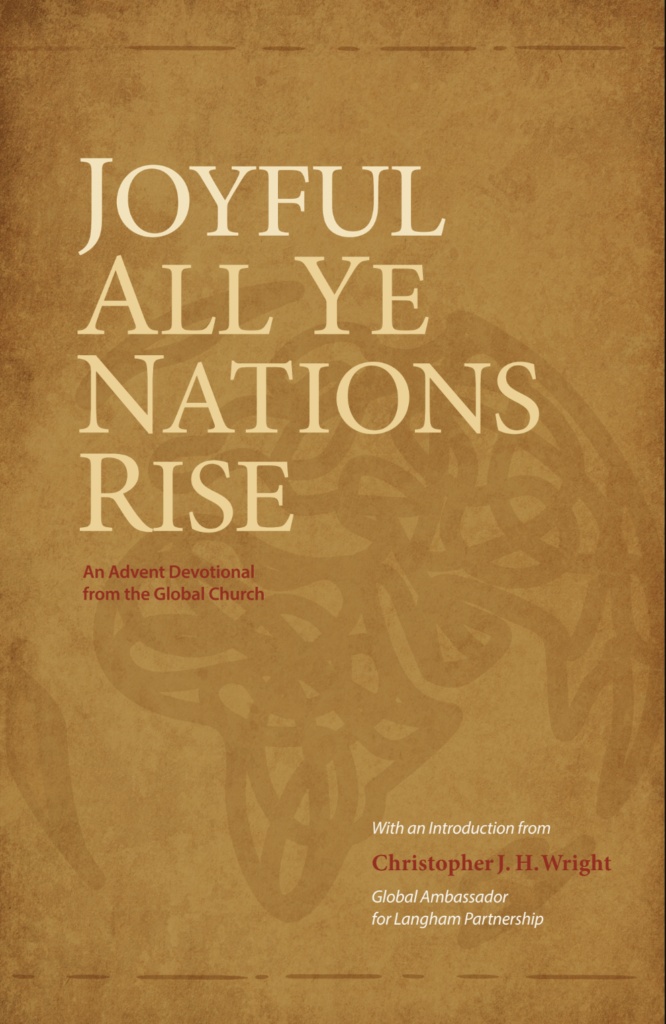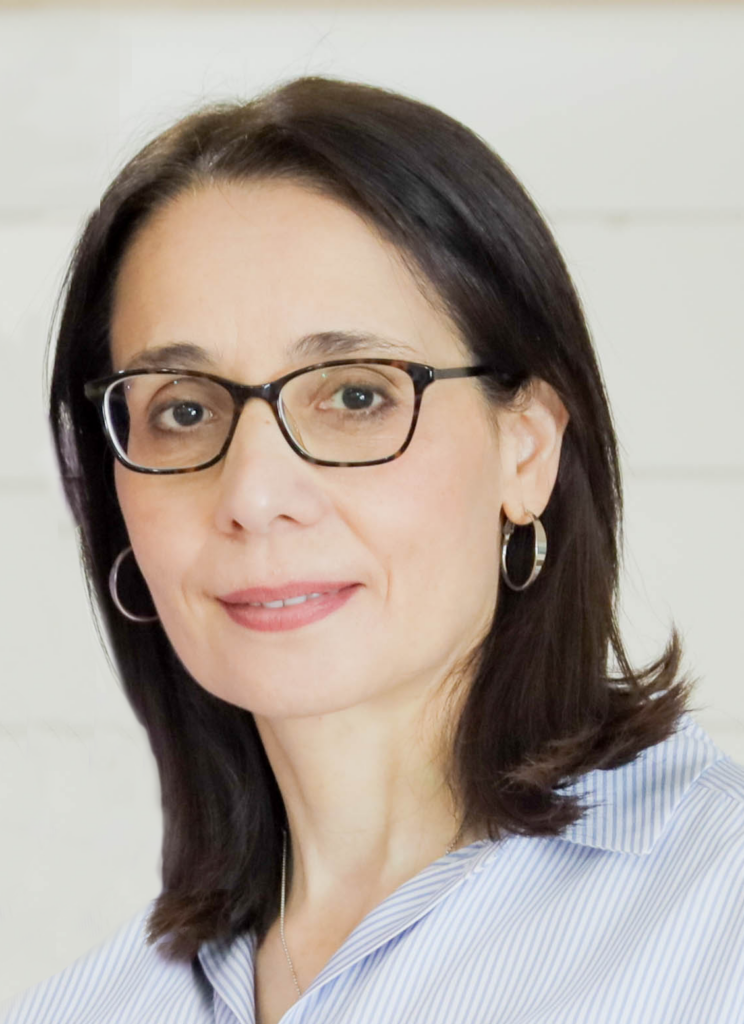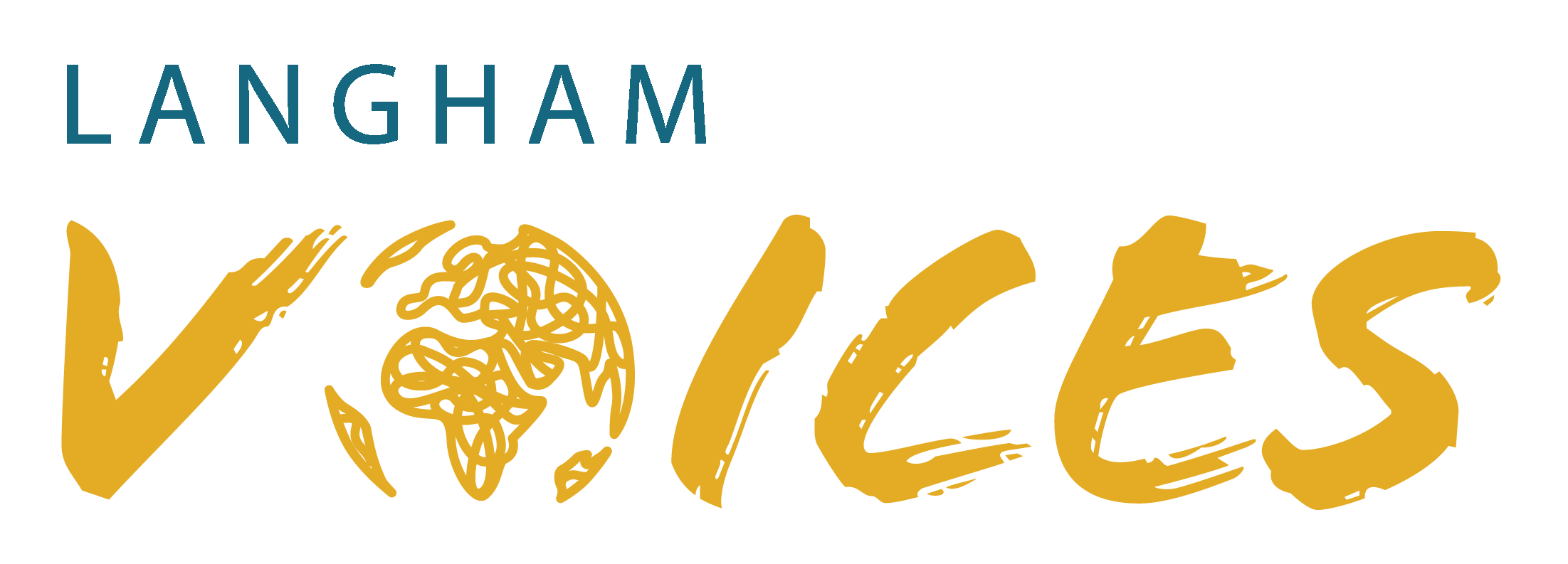An Advent devotional from an Israeli-Palestinian Christian

By Dr. Rula Mansour
An excerpt from “Joyful All Ye Nations Rise: An Advent Devotional from the Global Church” (2024).
O come, thou Rod of Jesse, free thine own from Satan’s tyranny; from depths of hell thy people save, and give them victory o’er the grave. Rejoice! Rejoice! Emmanuel shall come to thee, O Israel!
— O Come, O Come, Emmanuel (v. 3)

A reflection on Isaiah 11:1-10
This Christmas season, our hearts resonate with the cries of a war-torn land where
sadness, anger and hatred prevail. As we mourn lives lost—both Palestinians and
Israelis, especially children and women—we find ourselves immersed in a scene
reminiscent of the biblical context into which Christ was born: a time of darkness,
suffering, oppression and brutality.
Isaiah 11:1–10 paints a picture of hope and restoration. The “Rod of Jesse” symbolizes the coming of a Messiah from David’s lineage, a leader endowed with wisdom, understanding, counsel, might, knowledge and the fear of the Lord. He will usher in a kingdom ruled by righteousness and justice and an era of peace where even natural enemies will coexist harmoniously. Thus Isaiah prophesies the peace that Christ brings, a peace that transcends our earthly struggles.
The lyrics of “O Come, O Come, Emmanuel” draw directly from this prophecy. The “Rod of Jesse” is a plea for the Messiah to come and liberate people from oppression and tyranny. This liberation is not just physical but spiritual, freeing humanity from the bondage of sin and death. The refrain is a call to celebrate the anticipated arrival of God with us, bringing this longed-for salvation.
Amid the Israel-Gaza war, we hold on to two divine gifts: the presence of God (“O Come, Emmanuel”) and the gift of hope (freedom from “Satan’s tyranny” and “depths of hell”). Jesus walks with the oppressed and marginalized. His healing and comforting presence brings hope to suffering people—hope that transcends earthly disappointments. Amid our pains and losses, we hold to the promise that the current devastation is not the end of the story. God continues to write the next chapter. He is with us in our suffering and will bring justice and right all wrongs.
So, even as we grieve and confront our fears, it is not without hope. We hold onto
the divine promise that Jesus’ reign brings reconciliation (Isaiah 11:6). Hope
looks beyond hardships, trusting in God’s complete sovereignty over injustice,
believing that light can be reborn from the womb of darkness. Through us, Jesus will tear down walls, resist evil with good and pave the way for a peaceful future for Israelis and Palestinians.
Isaiah 11 and “O Come, O Come, Emmanuel” resonate with “Laylat Al-Milad” (“On Christmas Night”), a famous Arab Christmas song about love breaking through darkness:
“On Christmas night, hatred vanishes; earth blooms; war is buried; love is born.”
Its verses remind us that Christmas carries a call to action:
When we offer a glass of water to a thirsty person, we are in Christmas
When we clothe a naked person with a gown of love, we are in Christmas
When we wipe tears from weeping eyes, we are in Christmas
When we cushion a hopeless heart with love, we are in Christmas
When the spirit of revenge dies in me, I am in Christmas
When my soul melts in the being of God, I am in Christmas
Through the acts of compassion, liberation, healing and forgiveness illustrated in this song, God restores human dignity. The church, His transformed community, displays these signs of the kingdom in the face of oppression as evidence of God’s new world. In the hope that God will bring justice and right all wrongs in His time, we see “war buried” through the eyes of faith, motivating us to tear down dividing walls, resist evil with good and hatred with love. When our “souls melt in the being of God,” His love moves us away from exclusion to embracing others, turning enemies into friends. Then we become beacons of hope, embodying God’s restoring presence to the lives we touch.
The story of God-with-us is not just about Christ breaking down the wall
between humanity and God. It’s also an invitation to work with Him to break
down barriers that divide us as individuals, communities and nations.

Dr. Rula Mansour is a Palestinian Christian from Nazareth, Israel, and a graduated Langham Scholar. She is the founding director of the Nazareth Center for Peace Studies and associate professor of Reconciliation Theology and Christian Ethics at Nazareth Evangelical College. She and her husband, Bader, live in Nazareth with their three sons: Adi, Rami and Sami.
